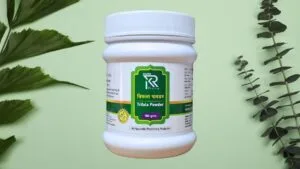
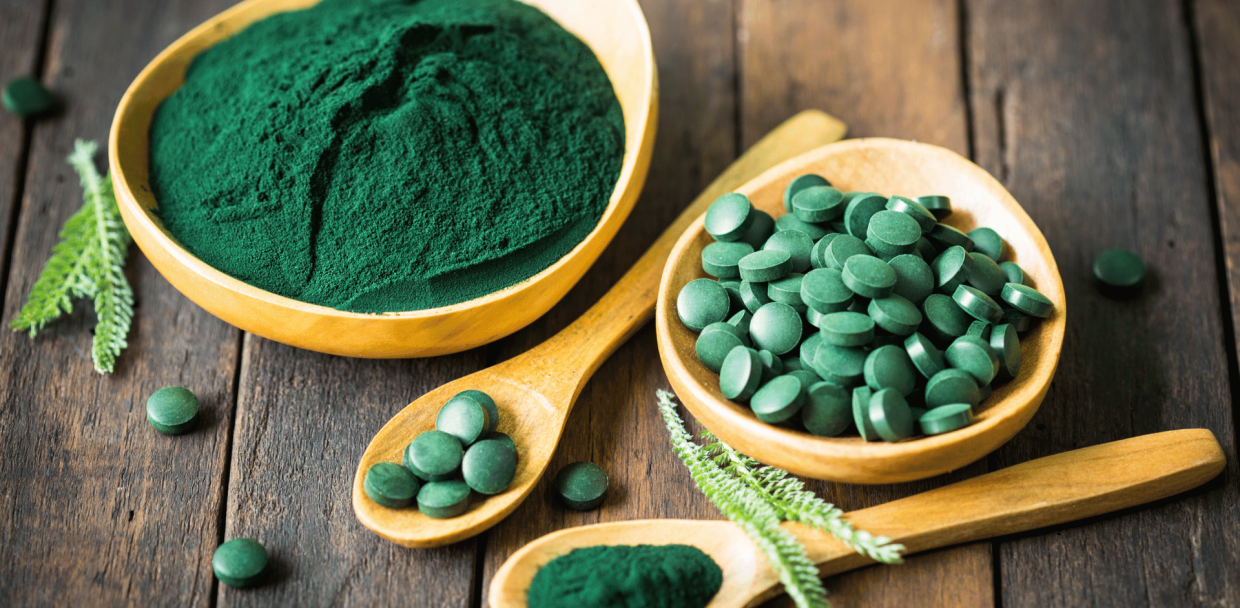
Ever wondered how to get all the essential nutrients with just one small pill? This thought might cross everyone’s mind at some point. Due to the busy lifestyle and the constant hustle to meet the nutritional requirements through food, taking supplements has become essential for fulfilling nutritional needs, especially after a certain age. Are you facing a shortage of protein in your diet? Struggling to keep up with regular exercise? Hesitant about artificial protein supplements? Dealing with a deficiency in Vitamin B12, especially if you follow a vegetarian diet? Then, spirulina is the miraculous superfood for you.
Spirulina is rich in protein, fiber, iron, Vitamin A, Vitamin B12, folic acid, copper, and other essential nutrients. Approximately 100 grams of spirulina contains 50-60 grams of protein, making it one of the best sources of protein for humans.
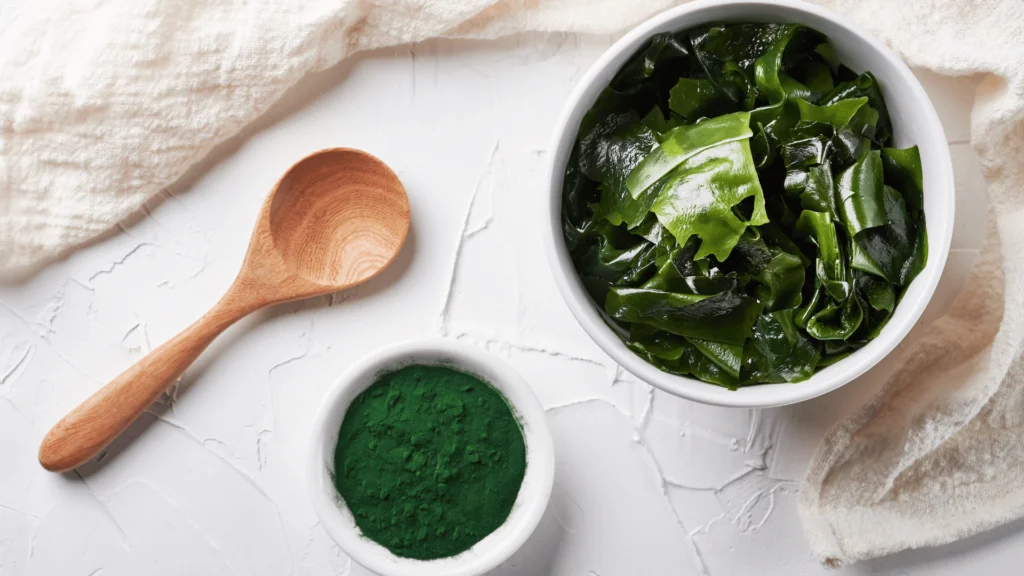
This supplement is not a recent discovery but dates back to the 1950s when European scientific missions in Mexico found this plant. Recognizing its health benefits, it was dried and turned into cakes to be used as a supplement. Over the years, this herb has made its way to Western countries, and today, we don’t refer to it as a miraculous food, but rather a ‘miracle food’ when we consider its nutritional elements and benefits. Let’s explore the advantages of this superfood today.
Approximately 1 tablespoon or 7 grams of spirulina powder contains 4 grams of protein, 11% of Vitamin B1, 15% of Vitamin B2, 4% of Vitamin B3, 21% of copper, and 11% of iron. It provides 20 calories and 1.7 grams of healthy carbohydrates.
Protein: Spirulina stands out as an excellent source of protein. Its nutritional profile is well-balanced with essential nutrients required to keep the body healthy. For individuals engaged in fitness training or those looking for a reliable source of protein, spirulina is a healthy food option.
Weight Loss: The low-calorie and nutrient-dense nature of spirulina makes it an excellent addition to weight loss diets. Its use in weight loss diets contributes to improved stamina, immune system, and fulfills nutritional requirements.
Diabetes: Spirulina helps control enzymes released by the liver and pancreas, making it beneficial for both Type 1 and Type 2 diabetes by regulating blood sugar levels.
Cholesterol and Blood Pressure: Spirulina aids in maintaining lipid levels, reducing specific types of fats, and promoting overall cardiovascular health. It is known to help control blood pressure effectively.
Vitamin B12 and B-Complex: In the era of instant supplements, spirulina stands out for providing all kinds of vitamins, especially Vitamin B12 and B-complex, in abundant quantities. It’s an easy source for those who might be deficient and can be particularly effective during stressful times or health challenges.
Arsenic Poisoning: Spirulina, with its strong antioxidants and detoxifying properties, can help eliminate arsenic poisoning from the body. While this has not been extensively documented in journals, it has been successfully utilized by the people of Bangladesh, who faced arsenic poisoning due to contaminated water. Studies are ongoing to explore its effectiveness in various types of food poisoning.
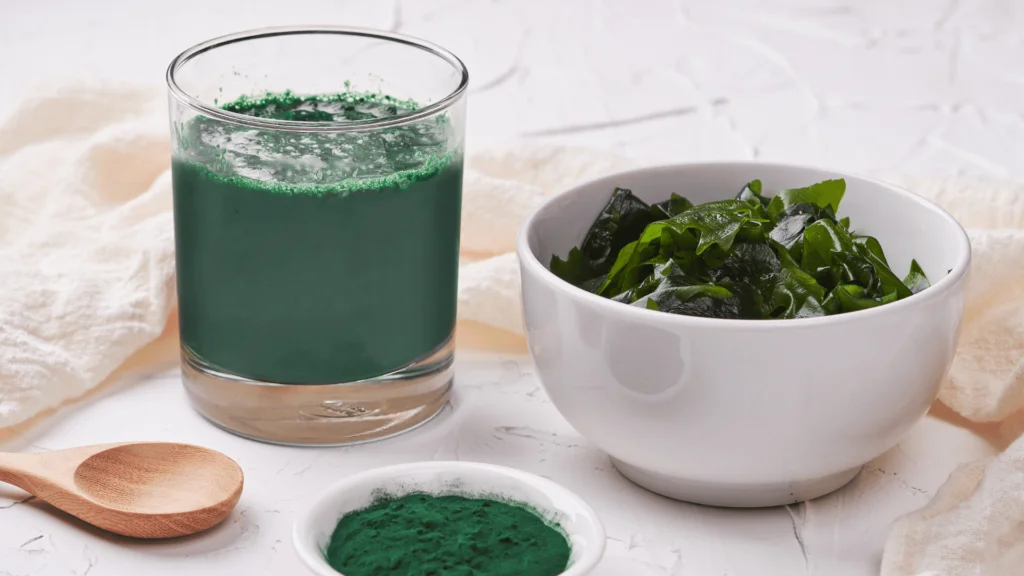
Brain and Nervous System: Spirulina contributes to the overall health and proper functioning of the brain and nervous system. Its consumption promotes mental clarity and may help alleviate various neurological issues. Spirulina’s health benefits extend to strengthening nerves and improving cognitive functions.
Amino Acids: Spirulina is rich in protein and amino acids. It aids in gastrointestinal and duodenal ulcer management and helps in digestion due to its high fiber content. Spirulina supports the strength and improvement of neurons.
Anti-Inflammatory: Spirulina is abundant in anti-inflammatory properties. It has been proven through numerous studies that spirulina’s anti-inflammatory effects can assist in combating allergies effectively. Spirulina inhibits histamine release, providing protection against various allergic reactions.
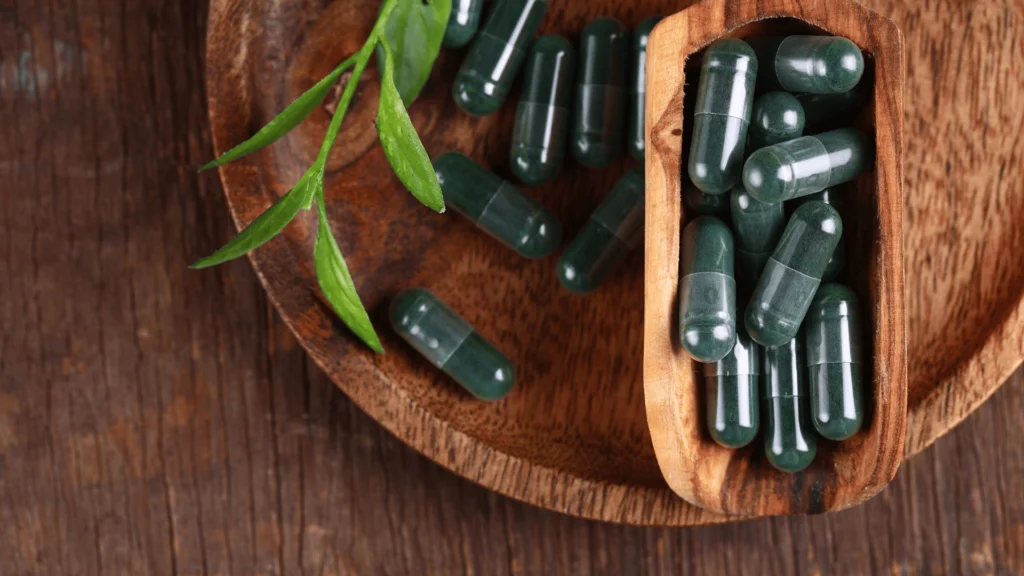
Antioxidant: Spirulina acts as a potent antioxidant. Its rich antioxidant properties help reduce oxidative stress. It is particularly beneficial in defending the body against various viral infections.
Dosage:
Typically, an individual can easily consume 2 to 10 grams of spirulina powder per day. Starting with a small teaspoon or one tablet a day is a common practice.
While we now take it as a supplement, spirulina has been a staple food for a specific indigenous community in Mexico since the 16th century. The Tekskoko Lake in Mexico is historically mentioned as the place where spirulina was first discovered.
Whether you’re feeling fatigued, dealing with anemia, lacking Vitamin B12, or facing a protein deficiency in a vegan diet, spirulina becomes a natural supplement. It’s also highly beneficial for building stamina and endurance in exercise routines.